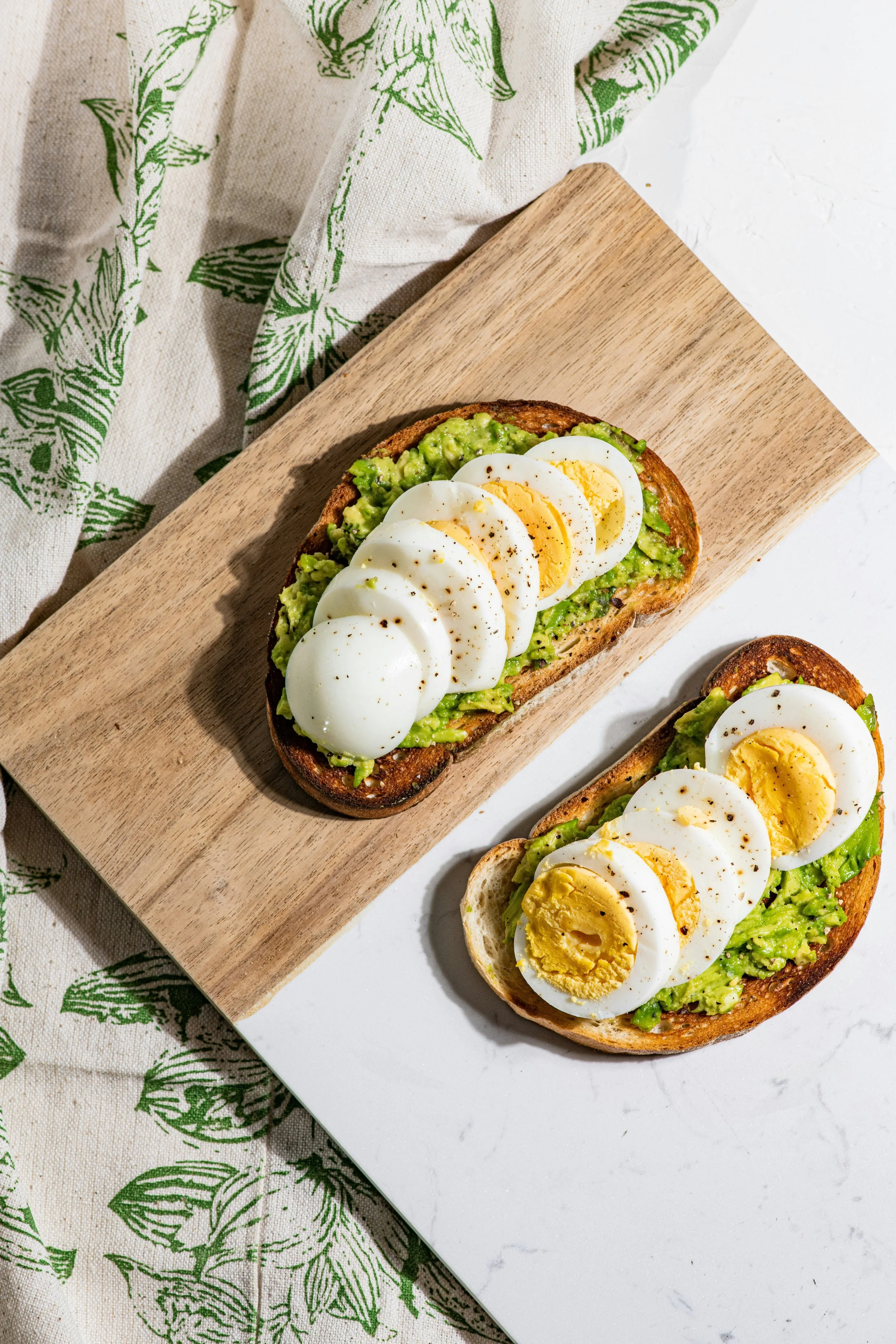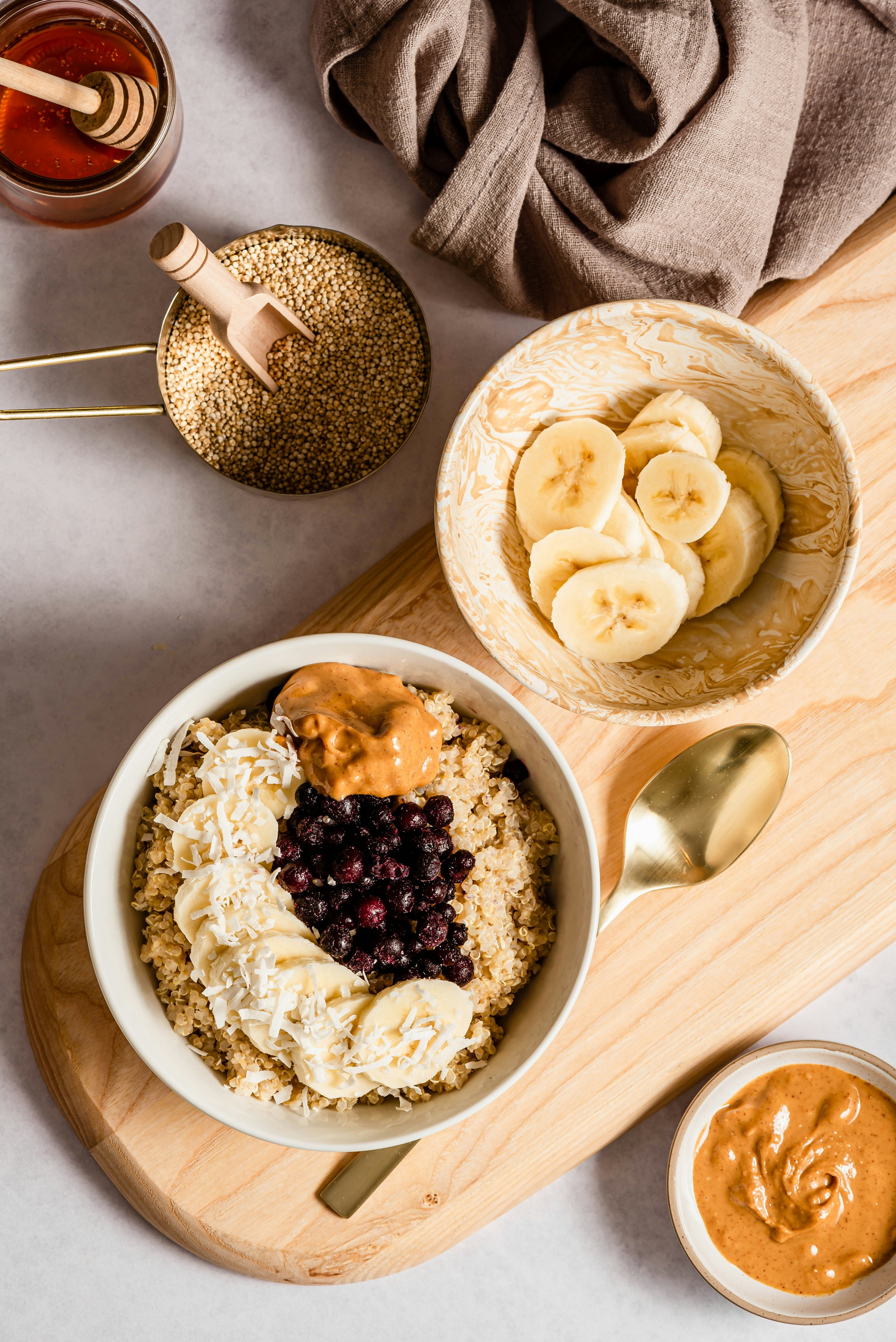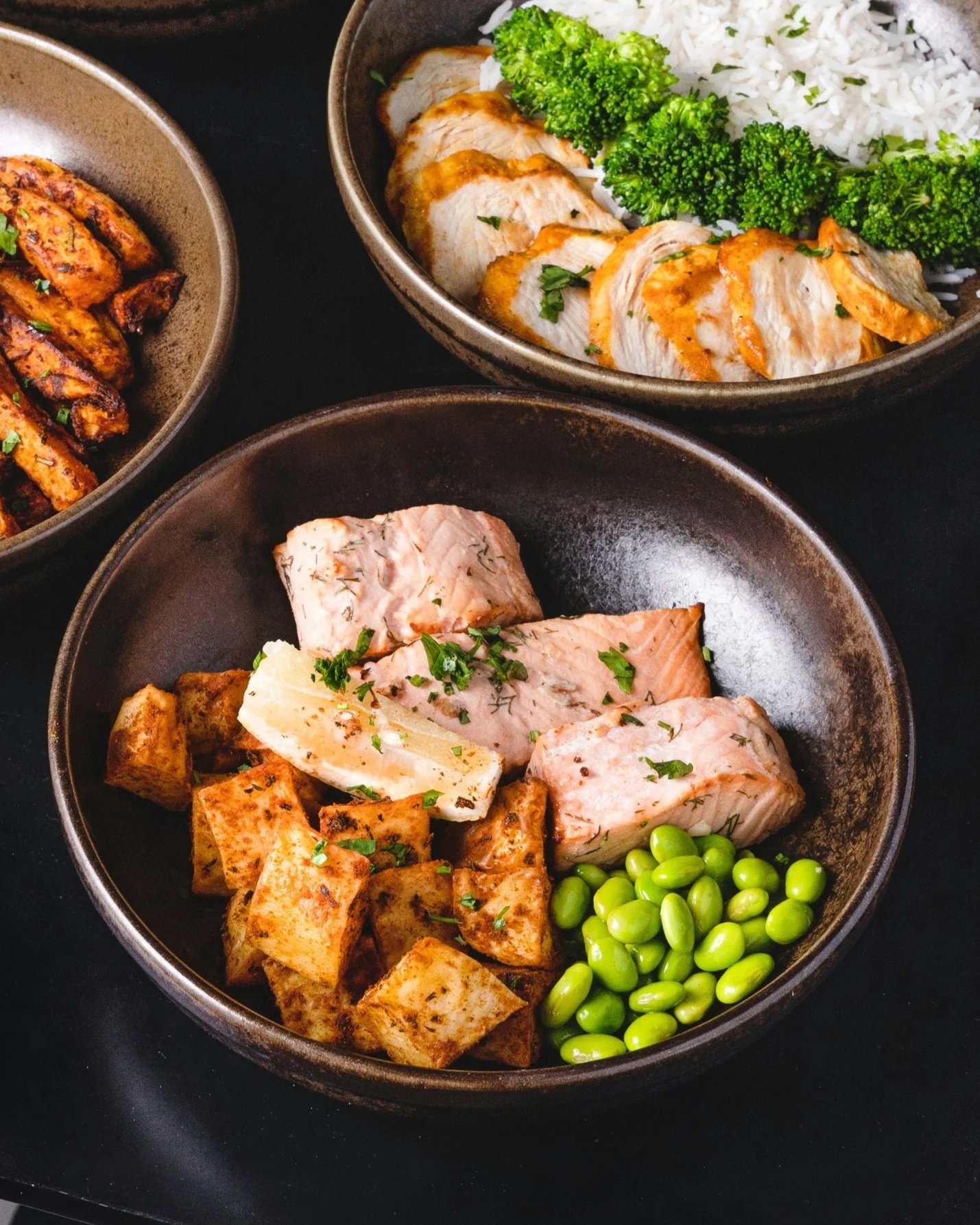
Nutrition
Throughout Each Trimester
Your nutritional needs change with each stage of pregnancy — and even after birth, as your body recovers and, if you choose, nourishes your baby through breastfeeding.
Think of food as both fuel and medicine, supporting your baby’s development and your own strength and vitality.

First-Trimester
Laying the foundation for life, while learning to listen to your body.
In the earliest weeks, your body is building the foundations of life — the placenta, the neural tube, and your baby’s earliest organs. At the same time, morning sickness and fatigue can make eating a challenge.
You actually don’t need to eat much more than your usual pre-pregnancy intake — no extra calories are officially required yet. But what does matter is what you eat and how you feel.
Here’s a Simple Guide
Eat when hunger calls, even if that means smaller, more frequent meals. Choose nourishing whole foods — fruits, vegetables, whole grains, quality proteins like eggs, beans, meat, or tofu, and healthy fats such as avocado, nuts, and olive oil. Include iron-rich foods paired with vitamin C to support early blood volume expansion, and keep hydration steady, especially if nausea is part of your days. Honor your cravings and aversions as your body’s way of speaking to you during this tender stage.
Key Nutrients
Folate, B vitamins, iron, vitamin B6 (to ease nausea), omega-3s, and plenty of hydration.
Focus Foods
Leafy greens, lentils, beans, citrus fruits, fortified grains, ginger, bananas, small protein-rich snacks, and ample water or electrolyte-rich fluids.
Tips
Eat little and often to ease nausea, and keep wholesome snacks within reach — even by your bedside for gentle relief before getting up. If solid food feels difficult, blend a nourishing smoothie instead. Sip ginger tea or lemon water for calm support, and give yourself permission to rest when fatigue is strong — your food rhythms will naturally adjust as your energy shifts.
First Trimester Affirmation
“I trust my body to guide me — every craving, every rest is part of building new life.”
Second-Trimester
Energy returns and growth quickens — a season for balance and steady nourishment.
By the second trimester, many women feel relief from early nausea and fatigue. Your baby’s growth accelerates, your blood volume expands, and your appetite often improves. This is a time to fuel both yourself and your baby with balanced, nutrient-rich meals.
Here’s a Simple Guide
Focus on steady energy by including protein at each meal — eggs, chicken, beans, lentils, fish, or tofu. Choose iron-rich foods and pair them with vitamin C to support healthy blood building. Calcium and vitamin D become especially important as your baby’s bones strengthen, so include yogurt, leafy greens, or fortified plant milks. Choline-rich foods like eggs also support brain development. Keep your plate colorful with fruits and vegetables, and sip water regularly to ease swelling and support circulation.
Key Nutrients
Protein, iron, calcium, vitamin D, choline, magnesium, and steady hydration.
Focus Foods
Eggs, lean meats, salmon, yogurt, fortified plant milks, nuts, seeds, beans, quinoa, leafy greens, colorful vegetables, and fresh fruits.
Tips
Keep portable snacks on hand, that are balanced and combine protein and healthy fats — like apple slices with nut butter, trail mix or hummus with veggies. If swelling begins, add magnesium-rich foods such as avocado or almonds. Try meal-prepping balanced lunches and dinners so you don’t skip meals when busy. Make hydration easier by carrying a water bottle and adding lemon or electrolytes — sipping throughout the day to ease swelling and support healthy circulation.
Second Trimester Affirmation
“I am strong, nourished, and full of energy. With every meal, I sustain my growing baby and myself.”
Third-Trimester
Preparing for birth with foods that comfort, strengthen, and sustain.
In the final months, your baby is gaining weight rapidly, and your body is preparing for labor. Digestion may slow, reflux may appear, and swelling can make you feel heavy. Nutrition now is about sustaining strength, reducing discomfort, and preparing for delivery.
Here’s a Simple Guide
Opt for smaller, lighter meals more often to reduce reflux. Prioritize omega-3s from salmon, chia, or flax to support your baby’s brain development. Magnesium-rich foods like spinach, avocado, and almonds can help with leg cramps. Fiber from whole grains, fruits, and vegetables supports digestion and eases constipation. From week 36, dates may help with cervical ripening and smoother labor. Hydrate steadily and choose gentle, nourishing foods that comfort your body as it readies for birth.
Key Nutrients
Omega-3s (especially DHA), magnesium, iron, fiber, dates, and plenty of fluids.
Focus Foods
Fatty fish like salmon, chia and flax seeds, almonds, spinach, avocado, whole grains, prunes, dates, and a rainbow of fruits and vegetables.
Tips
Keep easy snacks like overnight oats, energy bites, or fruit with nut butter nearby. Elevate your head at night or eat earlier dinners to minimize reflux. Choose warm, grounding meals such as soups and stews for comfort. If constipation sets in, add prunes or pears. Gentle herbal teas like chamomile can support both hydration and relaxation.
Third Trimester Affirmation
“I am grounded, strong, and ready — my body knows how to carry me and my baby through this final stretch.”
Post-Partum
A time of healing, restoration, and tender nourishment for mother and baby.
After birth, your body shifts into recovery — repairing tissues, replenishing blood, and, if breastfeeding, producing milk. This season calls for warmth, comfort, and easy-to-digest foods that replenish your reserves and nurture both you and your baby.
Here’s a Simple Guide
Prioritize warm, grounding meals — soups, stews, and broths rich in protein and minerals. Iron-rich foods help restore blood loss, while vitamin C supports healing. Include oats, flax, or fennel if you’re breastfeeding to gently encourage milk supply. Keep hydrating with water and herbal teas. Choose soft, nourishing foods that comfort your digestion, and allow loved ones to support you with meals so you can focus on rest, recovery, and bonding with your baby.
Key Nutrients
Protein, iron, vitamin C, healthy fats, calcium, and hydration. For breastfeeding: galactagogues like oats, flax, or fennel may gently support milk supply.
Focus Foods
Warm broths, soups, and stews; soft-cooked vegetables; oats and whole grains; salmon and eggs; nuts and seeds; dark leafy greens; herbal teas such as chamomile, fennel, or fenugreek.
Tips
Batch-cook or freeze meals ahead of time, or lean on loved ones for help. Keep quick snacks — like trail mix, yogurt, or energy balls — by your bedside for late-night feeds. Add collagen or bone broth to soups for tissue repair. Stay hydrated by keeping a large water bottle nearby and sip between nursing sessions. Give yourself grace — food is both fuel and medicine as your body restores itself.
Postpartum Affirmation















